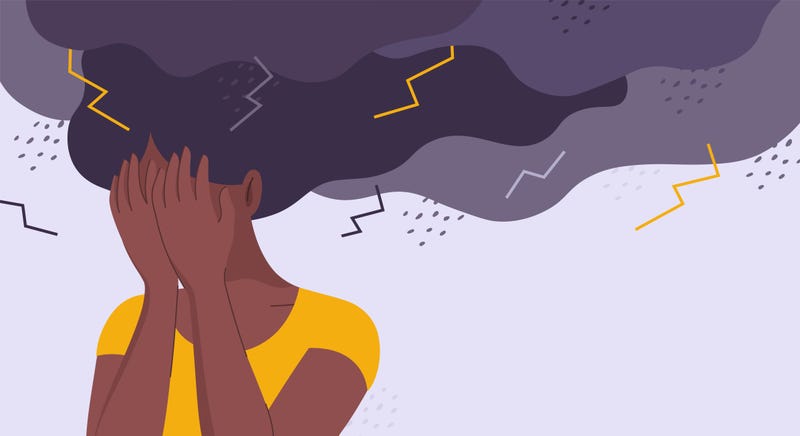
PHILADELPHIA (KYW Newsradio) — The national conversation about mental health reached a tipping point during the COVID-19 pandemic. These years later, open and honest discussions about mental health are still very important.
Doctors and clinicians say it starts with a simple act. If you know someone who seems to need help, check in, says Dr. Matthew Hurford, president and CEO of Community Care Behavioral Health, part of UPMC health plan.
“If you saw somebody that you really cared about walking down the street with a limp, all of a sudden, you wouldn't think twice about saying, ‘Hey, what's going on with your leg?’ You could say that because you know them, and we should think about mental health in the same way,” Hurford said.
To help someone who may seem out of sorts, you don't have to be a therapist. You just need to show that you care enough to ask about their mental health, Hurford says.
“If you notice that somebody's mood has been down more than usual, they're not engaging in the kinds of activities, they're not seeming to enjoy life as much, they've started to drink or use drugs in excessive amounts — those are all great prompts to reach out and start that conversation and check in.”
According to the CDC, more than 1 in 5 U.S. adults live with a mental illness, and 1 in 25 U.S. adults lives with a serious mental illness such as schizophrenia, bipolar disorder or major depression.
For a long time, there has been a lot of shame associated with talking openly about mental health, but Hurford says advocates have made great strides in reducing that stigma.
“It tells us that people are more open to talking about their mental health. People are reaching out and getting care, and that care is being provided. It's safe and effective. And if we can do one thing, this May, it is to further that and start more conversations about mental health,” Hurford said.
According to 2023 data from Mental Health America, Pennsylvania ranks sixth in the nation in providing access to mental health services for adults. Delaware ranks 15th, and New Jersey comes in at 23.
There are several options for treatment, including online therapy and even smart phone apps. For those without insurance, the Mental Health Association, and the National Alliance for Mental Illness, can provide local resources.
If you or someone you know is in emotional distress, consider dialing the 988 Suicide & Crisis Lifeline.
May is National Mental Health Awareness Month.
